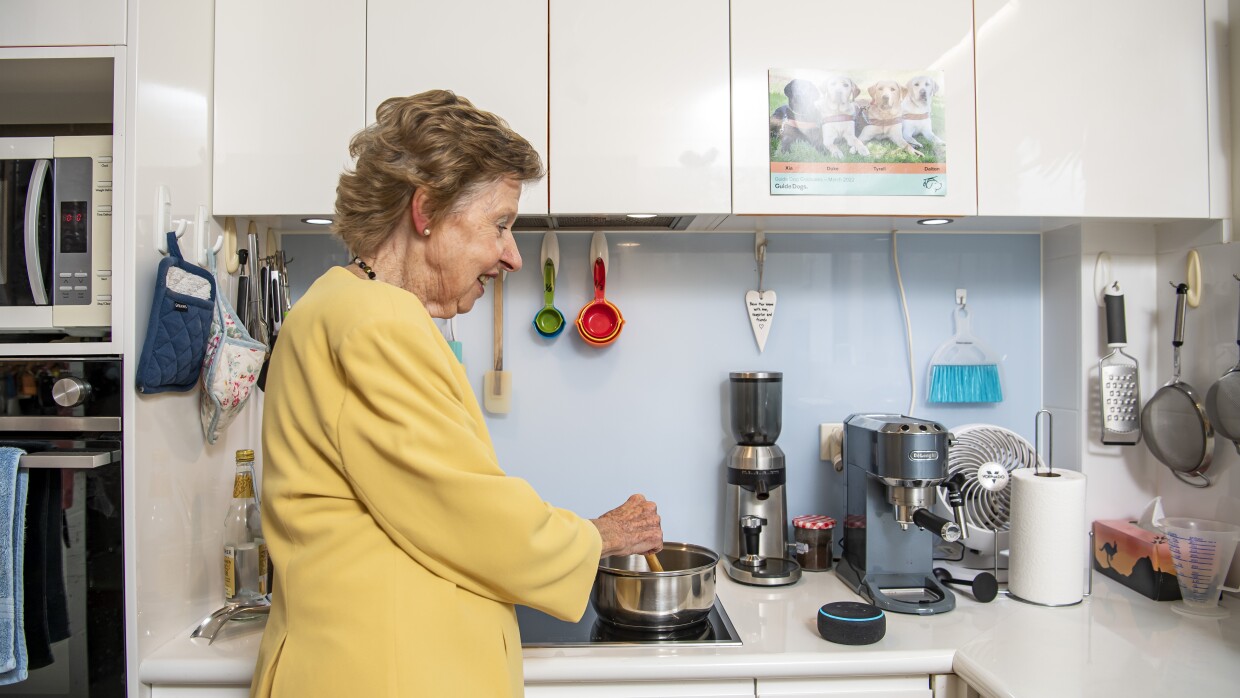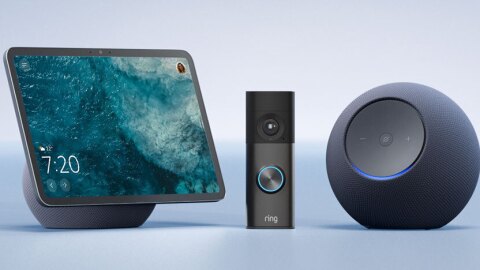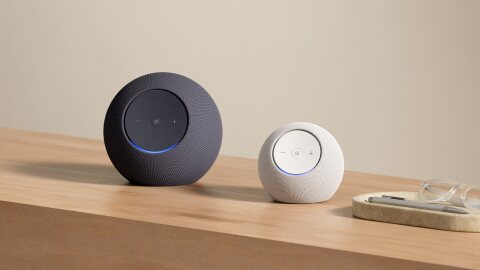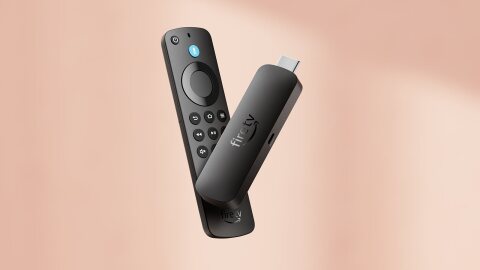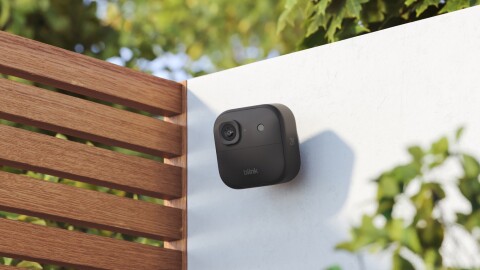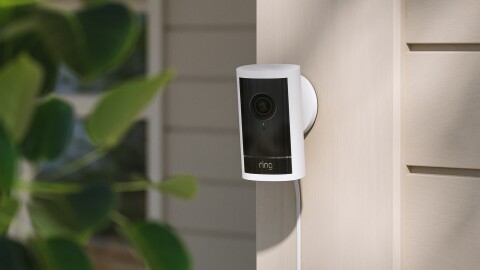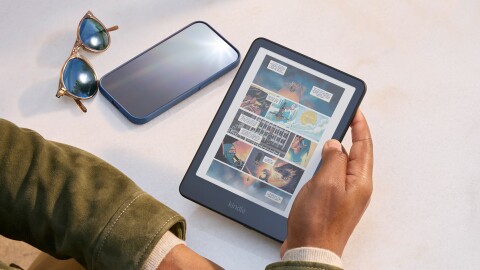Alexa can make lives simpler, safer, and more fun, but for many who live with disability, Alexa is much more than that. At Vision Australia (a national NGO for the blind and low vision community), a new Alexa program is underway to support older Australians with vision loss to build confidence, independence, and a sense of connection with family and friends. This World Sight Day (October 13), we explore how Alexa and Vision Australia are helping blind and low vision customers in Australia to do more with smart voice technology.
Through Commonwealth Home Support Program funding, Vision Australia has developed a new Alexa Smart Speaker Program providing Echo smart speakers with Alexa to qualifying clients free of charge. Devices are then coupled with a 12-week educational program where participants quickly learn how Alexa can help them use their voice to access tools for organisation, communication, and connection to live confidently in their homes and communities.
Access to information such as weather and news helps people who are blind or low vision to stay connected, from knowing whether to pack an umbrella when rain is forecast, to staying abreast of local information and events. Closer to home, tools such as kitchen timers, shopping lists and voice reminders, coupled with access to music, radio and podcasts, have helped participants manage their home life with more joy and confidence.
Creating a new community of smart speaker enthusiasts
“Just giving away devices isn’t enough,” says John Clower, Access Technology Specialist with Vision Australia and one of the Alexa Smart Speaker Program leaders. “We developed a structured 12-week program to show clients what smart technology could make possible, building capability, but also confidence as friendships were made while the group discovered how Alexa could be useful for them. Running the program virtually, we helped participants build the knowledge and skills needed from home, helping them gain the independence Alexa can offer.”
From tech settings and privacy fundamentals to specific device features and Alexa Skills, the program offers both “Alexa 101” and technical support while emphasising peer-to-peer discussions to learn from each other’s smart speaker experiences and use each week.
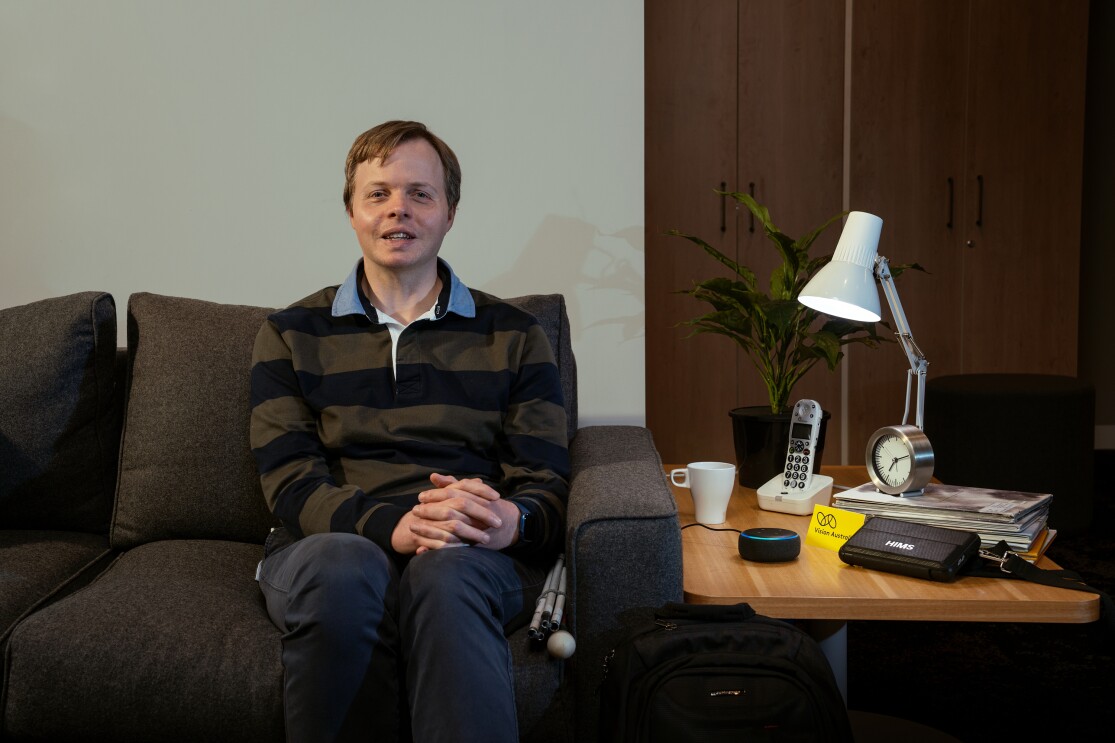
Lived experience informs Alexa training
John brings a personal approach to the program as someone who has lived with life-long low vision. John also works hard to learn the interests of program participants to help them understand how technology can guide them to explore favourite things in life.
“When you find out someone is a history buff, it’s great to show them how to call up history podcasts through their Echo device,” John said. “It’s a special moment as they realise how Alexa can deliver not only practical day-to-day assistance in the home, but also connect them more easily to their passions and interests, making the world feel smaller.”
Delightful new discoveries every day
Valerie, 81, was delighted to be gifted an Amazon Echo device from her local Vision Australia office, but had no experience with smart speaker technology before joining the program. Through the program’s group Zoom calls, she quickly embraced the possibilities Alexa brought into her home.
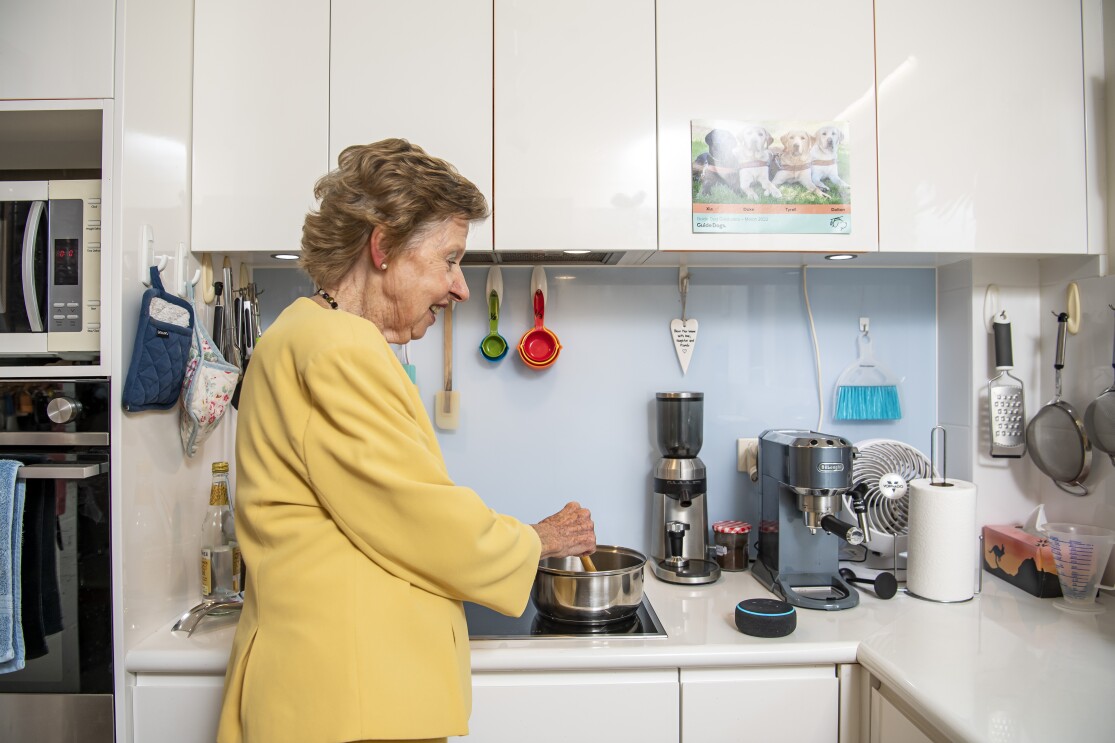
“The group situation provided lots of insights to the ways others were using the device and everyone shared their experiences,” Valerie said. “One lady uses Alexa to check if she’s taken her medication. Another guy checks the football results. One lady even learned Italian! Alexa and this program have revolutionised my life. There are so many useful things I can do now that were just harder to do as a low vision person.”
For Valerie, features such as kitchen timers and daily reminders were a big part of the Alexa journey – “My husband needs reminders more than I do!” – but it’s become an easier option than ever to quickly connect with family. She now uses Alexa as an aide to help tutor her grand-daughter to find answers across maths, science and English subjects.
Valerie continues to find more avenues to explore as she hears about new Alexa Skills from friends, such as sharing music, quizzes and jokes. “We loved these sessions so much, we continue to meet up each fortnight,” Valerie said. “Some of the participants lived alone or outside of major cities, so this became a lifeline to connect with others.”
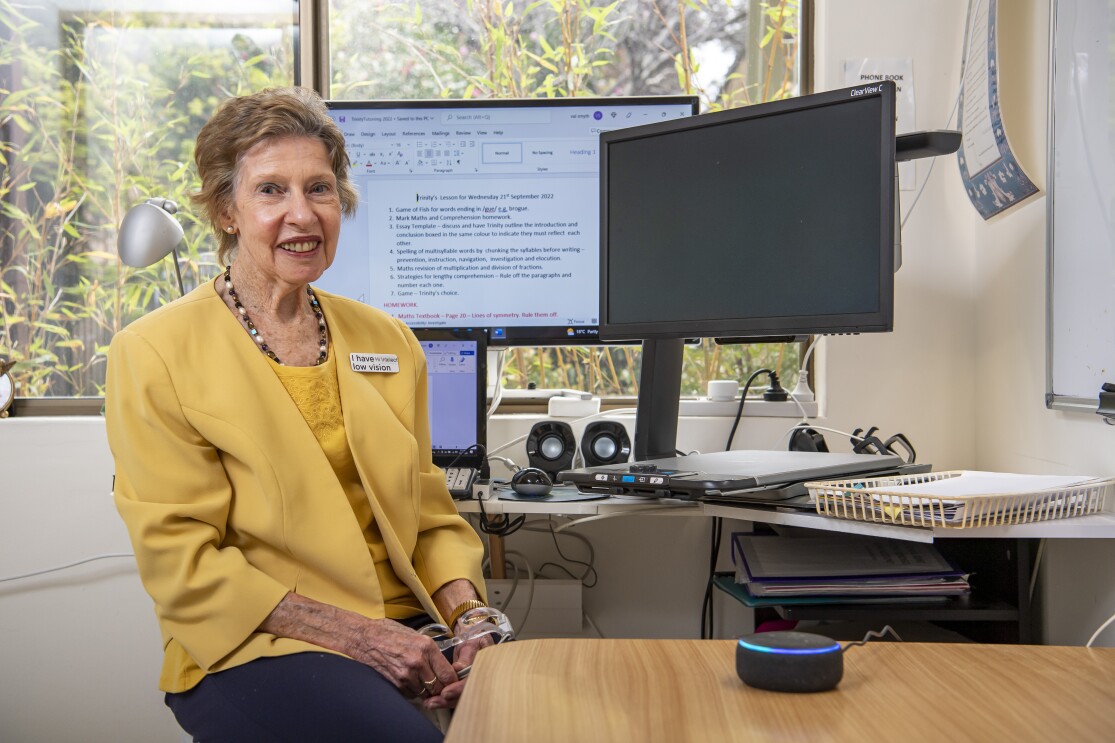
Further support through Alexa Skills
Vision Australia has also developed an Alexa Skill of its own, providing voice access to the organisation’s podcasts, original audio programming, and answers about eye and sight conditions, as well as the ability to request a call back from Vision Australia’s support services.
“Alexa makes it easier for people who are blind or have low vision to access the content and services that Australians of all abilities rely on every day,” says Chris Edwards, Manager of Government Relations and Advocacy for Vision Australia. “We’re excited that an off-the-shelf smart speaker device can help older members of our community feel more included and empowered than ever before.”
“Through the power of voice, Alexa has become an amazing example of how smart voice technology can help blind and low vision Australians; made even more exciting in the impact we’ve been able to create with Vision Australia,” says Kate Burleigh, Country Manager Alexa ANZ. “Having a friendly voice right there when needed is a powerful tool for this community, and is inherently personal. Helping Vision Australia to build this program to show Alexa’s value for their community has been a joy, and we’re excited to see it come to life.”


